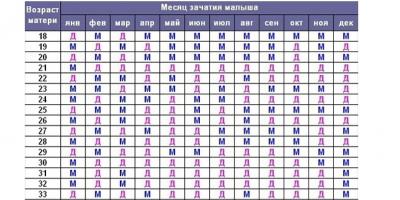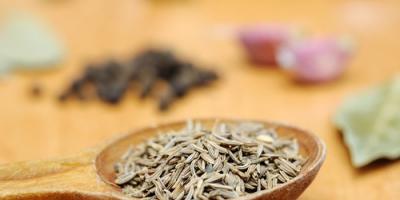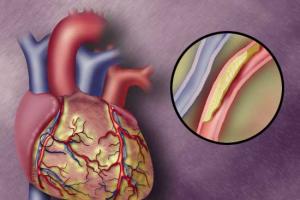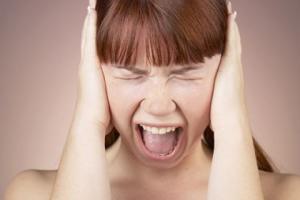The cold season is a period of colds, and therefore most parents are fully armed when the child shows the first signs of the disease: runny nose, cough, fever. However, the sudden onset of a nocturnal attack of a barking rough cough in a baby causes many mothers to stupor, and they are lost. But in this case, you need to act quickly - such a cough makes breathing difficult and sometimes poses a threat to life.
If the cough acquires a barking character, and at the same time there is no sputum or there is very little of it, we can safely talk about the inflammatory process in the larynx. Often the vocal cords are also involved, and then the baby's voice sits down and becomes hoarse.
The inability to cough, especially at night, disrupts sleep, the child becomes lethargic, quickly tired and naughty. The temperature often rises, and other symptoms appear:
- There is swelling and inflammation of the larynx;
- headache, nausea, vomiting;
- Inflammation of the lymph nodes.
In most cases, a barking cough is viral in nature, where the causative agents are: influenza virus, parainfluenza, adenoviruses, rhinoviruses.
Often, such a cough can be a sign of a respiratory syncytial infection of the larynx in babies who are prone to allergic reactions. In this case, there will be no signs of a cold (fever, intoxication), however, allergy symptoms may be present: frequent sneezing, watery eyes, skin rashes.
Barking cough in children can be caused by a number of other reasons:
- Too dry indoor air;
- The presence of a foreign body in the larynx;
- Constant overexcitation, stress;
- Worm infestations;
- Tumor in the throat.
If your child coughs at night, and you cannot completely relieve the attack, while there is an increase in symptoms (skin becomes bluish, difficulty in breathing and swallowing reflexes, signs of suffocation), do not waste a minute and call an ambulance. Often, such a cough is accompanied by swelling of the larynx, and in childhood, the narrowing of the windpipe by only 1 mm leads to a decrease in the size of the larynx by almost half, so you should not hesitate.
Possible diseases
Cough is just a symptom and cannot be cured with cough mixtures alone. In the vast majority of cases, a barking cough indicates the presence of a viral or bacterial infection in the body:
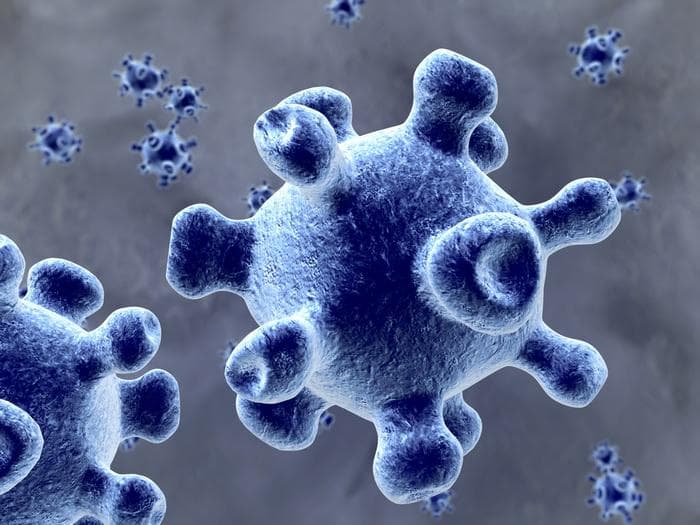
- (influenza, parainfluenza, rhinovirus) most often occur with a significant increase in temperature (sometimes up to + 40 ° C), signs of general intoxication (headache, weakness, lethargy, muscle and joint pain). With proper treatment, viral diseases, along with symptoms, disappear within a few days;
- Tracheitis, pharyngitis- inflammation of the throat or larynx. With these diseases, the appearance of a cough is characteristic from the very first days. As in the case of viral diseases, relief comes after a few days;
- False croup, laryngitis. Most often, they become the causes of severe bouts of barking cough and are most dangerous because of the risk of swelling of the larynx. Laryngotracheitis can occur against the background of a viral infection, and the child develops a barking cough, hoarseness, difficulty breathing;
- whooping cough, diphtheria. The risk of these infections is practically reduced to zero by timely vaccination. However, when a barking cough appears, which is practically not treatable, parents should think about an additional examination by a doctor. Another sign may be the appearance of a dirty coating on the tonsils;
- Allergy usually does not have the characteristic signs of a cold and disappears in the absence of contact with the allergen. May be the onset of bronchial asthma or asthmatic bronchitis.
In most cases, a barking cough appears in children under 5 years of age and is a sign of laryngitis. In infants, an attack can occur when dust particles enter the lungs, and be one-time. If attacks of dry barking cough become frequent, accompanied by an increase in symptoms (especially difficulty in breathing), parents should not delay visiting the pediatrician.
Medical treatment
If a coughing attack occurs suddenly at night, inhalation with Berodual, Prospan or Lazolvan helps to quickly relieve spasm. It is best for a child to use a nebulizer that allows you to deliver the drug to the farthest corners of the respiratory tract and has maximum safety in use.
When the doctor conducts an examination and differential diagnosis, it is possible to prescribe drugs from the following groups of drugs:
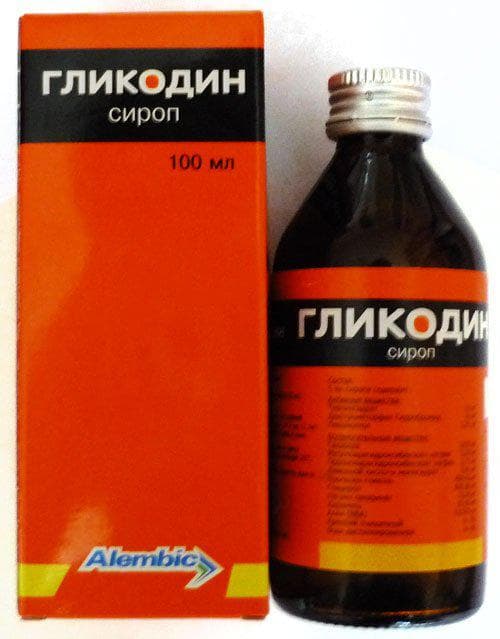
- Local antiseptics and antibiotics: Ingalipt, Decatilene, Vokara. They suppress the activity of pathogenic microflora and relieve irritation of the mucosa. Most often prescribed for pharyngitis;
- Antitussives: Sinekod, Panatus, Glycodin, Codelac, Terpinkod. They act on the nervous system (central or peripheral), suppressing the cough reflex. Simultaneous use with mucolytics or expectorants is contraindicated;
- Mucolytics: Ambrobene, Lazolvan, Bromhexine. Provide a decrease in the viscosity of sputum and increase its elasticity without increasing the amount;
- Expectorants: Gedelix, Mukaltin, Dr. MOM. They are prescribed after mucolytics to stimulate sputum production. Especially carefully used in the treatment of young children. Not taken concomitantly with antitussives. Reception stops as soon as the baby begins to cough well;
- Antihistamines: Zyrtec, Suprastin, Claritin. Used to identify the allergic nature of cough, can be prescribed for whooping cough;
- Antibiotics: Azithromycin, Doxycillin, Roxithromycin, Levofloxacin, Erythromycin. They are prescribed for tracheitis, laryngitis, bronchitis in case of attachment to the virus of a bacterial infection with severe manifestations.
- Antipyretic: Paracetamol, Ibuprofen, Panadol. Used when the temperature rises above +37, 5˚С. If the temperature is subfebrile, these drugs are not used, otherwise the baby's immunity does not receive a signal and is inactive, which leads to aggravation of symptoms;
- Immunostimulants: Viferon, Grippferon, Anaferon, Bronchomunal. They are used only after medical consultation and can be used in case of weakened immunity or the presence of severe chronic diseases;
- Vitamin complexes: Multi-Tabs Baby (from 1 year old), Vitrum Baby (from 2 years old), Vitrum, Pikovit, Supradin, Alphabet (from 3 years old). Reception can be made at the stage of recovery and as a preventive measure to strengthen general immunity.
The use of any drug for the treatment of a child must be justified and take place under the strict supervision of a physician. Self-medication with a barking cough is possible only in isolated cases, when it is impossible to get an appointment with a pediatrician. You should be especially careful when taking immunostimulating drugs - their unreasonable use can disrupt the functioning of the immune system.
Treatment with folk remedies
First of all, inhalations with eucalyptus or alkaline mineral water are recommended. After removing the signs of difficulty in breathing, you can give a syrup of radish with honey or onion with honey. This will relieve the spasm for a while. After that, slightly lift the baby's pillow and lay him on the side - so it will be easier for him to fight a possible attack.
Other folk remedies will also help in alleviating cough and preventing attacks:
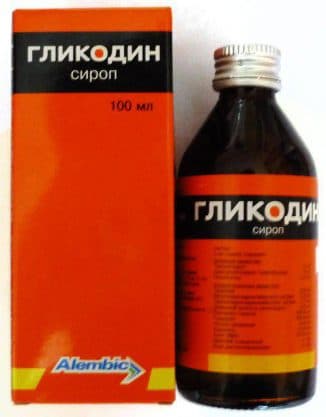
Of particular importance is the implementation of general measures: drinking regimen (plenty of drinking), air humidification, ventilation and wet cleaning, exclusion of provoking factors with a tendency to allergies. And, of course, providing a psychological microclimate - the baby should be in a calm state.
Prevention
In the vast majority of cases, a barking cough in a child is of a viral or bacterial nature. Therefore, in order to exclude its occurrence, it is necessary to constantly carry out preventive measures:
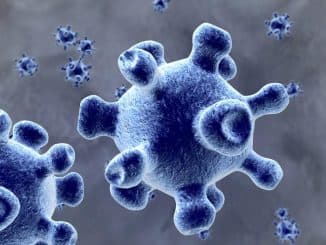
- Regular care of the child's immunity: saturation of the diet with fortified food and natural antiseptics, compliance with all the norms of good nutrition, gradual hardening, active sports, regular walks in the fresh air;
- Compliance with precautionary measures during periods of epidemics: vaccination, taking immunostimulants and antivirals, reducing the number of visits to public places, wearing a mask when one of the family members is infected;
- Compliance with the rules of personal hygiene: frequent hand washing, especially after coming from the street, using only personal hygiene items and utensils;
- Timely treatment of various acute respiratory viral infections and acute respiratory infections, elimination of other foci of infection in the body;
- With a tendency to allergic reactions - regular spa treatment or climatotherapy;
- If your child is still small but prone to colds, start accustoming him to lower temperatures, but do it gradually, lowering the t by about 1 degree per week when bathing. Do not wrap it up, and in the summer let it run barefoot, and better - on bare ground. In winter, it is useful to let him walk on a towel soaked in a salt solution, followed by rubbing his feet - there are reflexogenic zones that actively affect the functioning of the immune system.
Even with prevention, try to get by with a maximum of natural preparations, use herbs, bee products, vegetables and fruits - but always remember that with a tendency to allergies, even these remedies should be used with the permission of a doctor.
Video
conclusions
If your child coughs hysterically, with hoarseness and difficulty breathing, do not try to cure him yourself - you can lose precious time. Try to calm him down and see a doctor. A correct diagnosis, and even with the establishment of causes, is 50% of success in treatment. Remember that a barking cough is a harbinger of childhood laryngitis. And the latter can already lead to more serious diseases, such as false croup in children.
Carefully monitor the health of the baby, and most importantly - let him know that you love him, and then he will endure even the most severe symptoms calmly, and this is the key to success in treatment.

